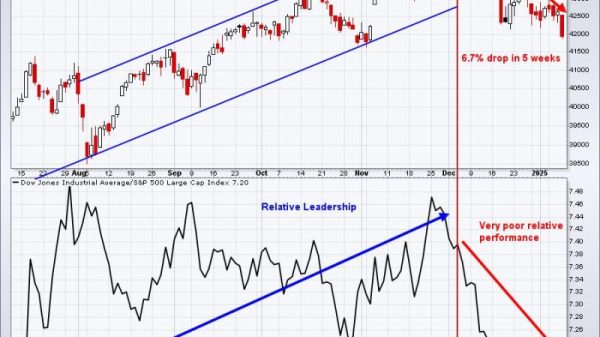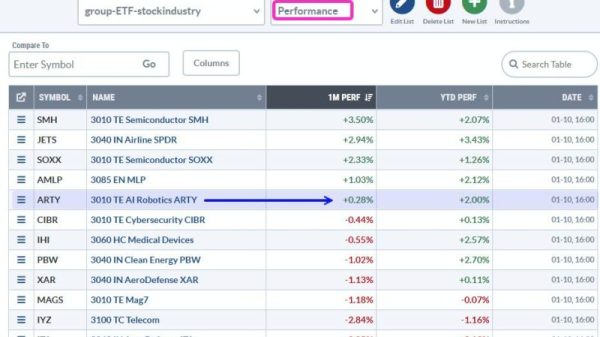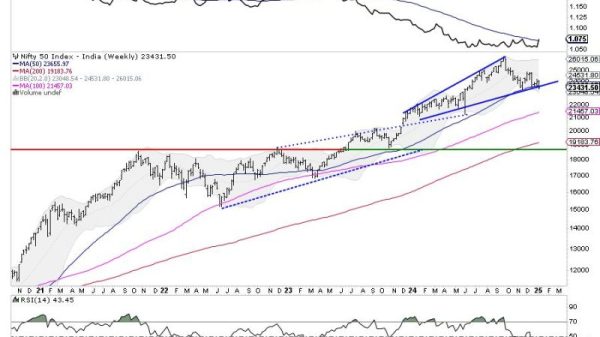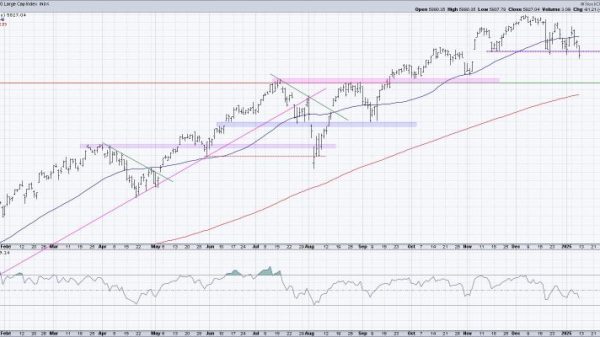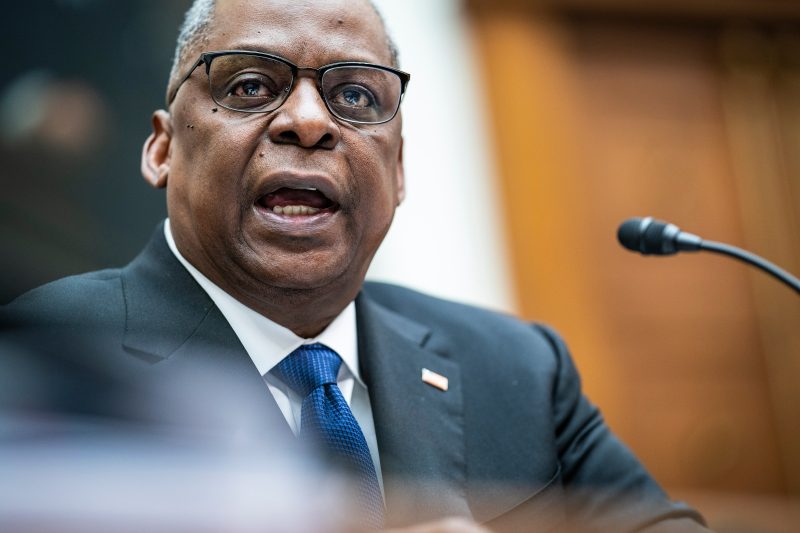The Defense Department inspector general said Thursday it will investigate the mishandling of Lloyd Austin’s recent hospitalization, which the Pentagon chief and others close to him kept secret from the White House and Congress for days in an apparent breach of protocol after he developed serious complications from prostate cancer surgery.
In a memo addressed to Austin, Deputy Defense Secretary Kathleen Hicks and other officials, Inspector General Robert Storch said his staff would begin its work this month. He indicated that while the inquiry will be focused on the Office of the Secretary of Defense, its scope could broaden.
Thursday’s announcement underscored the furor in Washington arising from Austin’s health crisis. Allies and adversaries alike have questioned his judgment in choosing to keep President Biden and other leaders in the dark about the extent of the secretary’s illness, while critics both inside and outside of the administration have assailed the Pentagon for its extensive breakdown after key figures had learned of his hospitalization but elected to sit on the information.
The Republican-led House Armed Services Committee has signaled its intent to investigate the matter as well, raising the specter of potentially damaging public hearings later this year as Biden seeks reelection. The panel’s chairman, Rep. Mike D. Rogers (Ala.), has said the administration’s “inexcusable” lack of transparency could have resulted in “calamity,” a concern others on Capitol Hill have voiced as the United States is indirectly involved in two wars and U.S. troops in the Middle East face near-daily attacks. Multiple GOP lawmakers and at least one Democrat have called for Austin’s resignation.
The inspector general’s aim, Storch wrote, “is to examine the roles, processes, procedures, responsibilities, and actions” surrounding Austin’s December surgery to treat his cancer, which went undisclosed until earlier this week, and his subsequent hospitalization dating to Jan. 1. The investigation will seek to determine whether the department’s “policies and procedures are sufficient to ensure timely and appropriate notifications” whenever senior leaders must delegate their responsibilities, whether for medical matters or any other reason, he explained.
The independent review will be conducted in addition to a 30-day assessment directed by Austin’s office and a parallel review ordered by the White House. Republicans have questioned whether the assessment ordered by Austin’s chief of staff, Kelly Magsamen, could be truly impartial as she faces scrutiny as well for not acting with urgency to apprise the White House of Austin’s hospitalization.
A Pentagon spokesman, Maj. Gen. Patrick Ryder, said Thursday that the Defense Department will support the inspector general’s review. Austin remained hospitalized in good condition, Ryder said. There are “understandably many outstanding questions,” the general added, indicating he will be limited in what else he can share until the reviews run their course.
Austin, 70, was taken by ambulance to Walter Reed National Military Medical Center and admitted to intensive care on Jan. 1 after suffering complications from a surgery Dec. 22 to remove his prostate, Pentagon officials disclosed this week.
The secretary’s health crisis was not shared with senior aides until Jan. 2 and the White House did not learn of it until Jan. 4, a stunning gap in communication considering the magnitude of Austin’s job overseeing U.S. national security. The Pentagon disclosed the hospitalization to Congress and the American public a day later but waited until Tuesday — more than a week after Austin’s arrival at Walter Reed — to disclose his cancer diagnosis and the complications that led to his hospitalization.
Doctors said in a statement released by the Defense Department that Austin, a retired Army general, was suffering from a urinary tract infection, a backup of his small intestines and the collection of fluid in his abdomen. That disclosure led to the realization that Austin had not informed Biden of his cancer diagnosis or the surgery to treat it. John Kirby, a spokesman for the National Security Council, called the situation “suboptimal” but said Biden stands by Austin and wants him to remain his defense secretary.
It remains unclear when Austin will be discharged from the hospital and whether he will require additional time to convalesce before returning to the Pentagon. His doctors have indicated the prognosis is good but that recovery from such an ordeal can be lengthy. And though he remains at Walter Reed, Austin has resumed many of his responsibilities, the Pentagon said.
Pentagon officials have struggled to explain why they failed for days to notify the White House of Austin’s extended hospitalization. Magsamen, his chief of staff, was sick with the flu, Ryder said, but several other senior aides — including the chairman of the Joint Chiefs of Staff Gen. Charles Q. Brown Jr. — also knew a day after Austin was admitted but said nothing to the White House or Congress.
Austin’s office this week announced it would conduct a 30-day review of what went wrong and look to improve. Austin also has taken full responsibility for not disclosing the hospitalization, saying Saturday that he would “commit to doing better.”
Republicans have been unrelenting in their demands for an explanation of “exactly what happened” and why Austin’s condition was kept secret.
“Whoever did something wrong, they’ve got to be held accountable,” Sen. Rick Scott (R-Fla.) said during a news conference alongside other GOP members of the Senate Armed Services Committee. “The American public is sick and tired of people doing the wrong thing and there being no consequences.”
Sen. Deb Fischer (R-Neb.) said the situation makes America appear weak to the rest of the world and puts the nation and its troops in a “dangerous position.”
“This is so serious — that you have somebody out of pocket, that the president doesn’t even know that the secretary of defense is out,” she said.
Sen. Roger Wicker (Miss.), the committee’s ranking Republican, suggested lawmakers would look at whether any military statutes need to be updated to prevent a similar situation in the future.
In the House, Minority Leader Hakeem Jeffries (D-N.Y.) rebuffed calls for Austin to resign. He agreed, though, in the need for a clearer account of what happened and said that some protocols may need to be updated “to ensure that information flow within the administration and between the administration and Congress is more expeditious.”
Rep. Steven Horsford (D-Nev.), chairman of the Congressional Black Caucus, joined by other caucus members, denounced “efforts to politicize a deeply personal and private health diagnosis.” In a joint statement, they said Austin has served the nation honorably, deserved privacy as he sought care for his cancer, and “we encourage others to decency in this moment.”
“Calls for Secretary Austin to resign or face impeachment proceedings are rushed judgments,” the statement said, noting that Hicks, the Pentagon’s No. 2, handled his duties while he was receiving emergency care.
Austin is the first African American to serve as secretary of defense.
Despite the outcry, Kirby, the National Security Council spokesman, defended how the White House keeps tabs on Cabinet officials and intimated that nothing radical would change as a consequence of what transpired in the Pentagon.
“We’re not going to track the GPS coordinates on somebody’s mobile phone in the administration,” he said, “and we’re not going to plant a microchip in their neck like they’re a poodle.”
Leigh Ann Caldwell contributed to this report.





